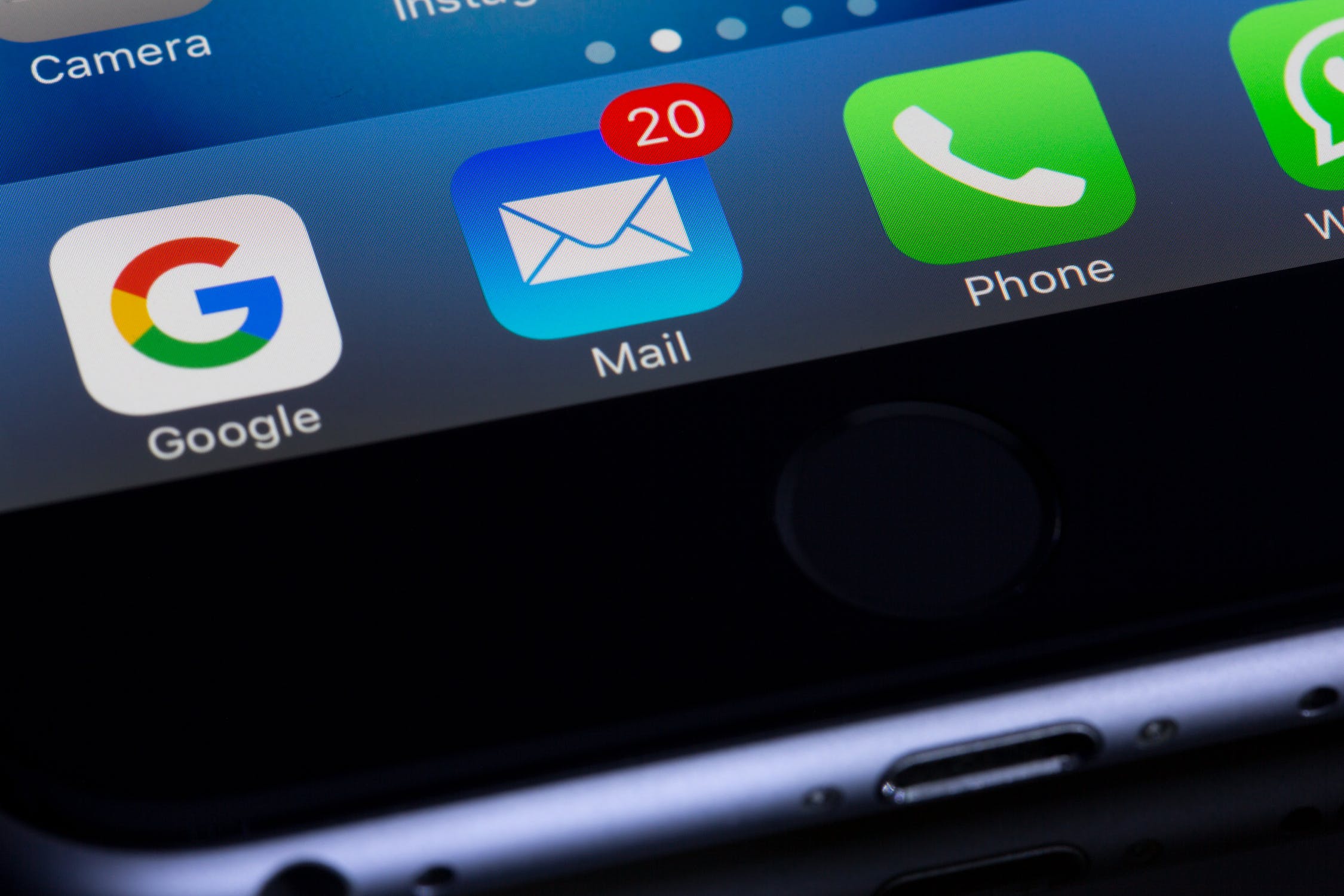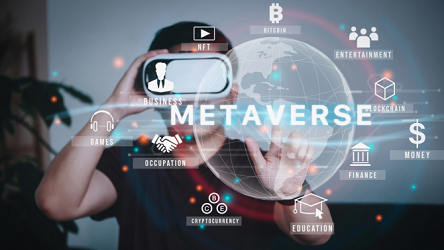Have you ever heard about email hacks? Do you know the possibility of an email hack? People may want to do email hacks for many purposes. Maybe someone wants assistance satirizing an email address, so it resembles the message is coming from another person. Whatever the reason stands, hiring a hacker for email can be a very effective way to get the job done. If you also need an email hacker you can hire from hackerslistco. we have a team of skilled professionals who are dedicated to providing our clients with the best possible service.
One frequently asked question is, “Is it possible to hack an email account?” In this article, we will delve into the intricacies of email hacking, the methods employed by hackers, and how to protect your email from such threats.
What is Email Hacking?
Email hacking is the unauthorized access to someone’s email account with the intent to steal information or misuse it. It’s essential to understand the various methods hackers use to breach email accounts. Email hacking, also known as email account hacking, refers to the unauthorized access to someone’s email account or email correspondence without their permission. This illegal activity involves breaking into or gaining unauthorized access to an individual’s email account or server to view, steal, or manipulate their email messages and other confidential information.
Is It Possible To Hack An Email Account?
Yes, email accounts be hacked. Email accounts, though essential for communication, are susceptible to various vulnerabilities. Cybercriminals employ a variety of methods to exploit these vulnerabilities and gain unauthorized access to email accounts. We understand the concerns surrounding email security and aim to provide you with a comprehensive understanding of the risks and preventive measures to safeguard your email accounts.
What Are The Reasons Of Hacking an Email Account?
We’ll know the motives and reasons behind this nefarious act. By understanding the underlying causes, you can better protect your email accounts and stay one step ahead of potential hackers. Here are the reasons:
1. Cyber Espionage
The realm of cyber espionage is one of the foremost reasons behind email hacking. Nation-states, cybercriminals, and even competitors have vested interests in gaining unauthorized access to sensitive emails. Espionage can include stealing government secrets, corporate strategies, or classified information.
State-sponsored hackers aim to infiltrate email accounts to gather intelligence, while corporate rivals might seek to gain a competitive edge. The motive here is power and information, making email accounts an enticing target.
2. Financial Gain
Email hacking is not solely about stealing secrets; it’s also about the allure of financial gain. Hackers often target individuals or organizations with the intent to commit identity theft, fraud, or extortion. They may seek valuable financial data, bank account details, or personal information to facilitate their criminal activities.
With this data in hand, hackers can engage in various financial scams, transferring money from victim accounts, or even holding sensitive data hostage.
3. Personal Vendettas
In some cases, email hacking arises from personal vendettas. Disgruntled individuals may resort to hacking an email account to seek revenge or gain the upper hand in a dispute. This often involves exposing personal information, spreading false narratives, or tarnishing someone’s reputation.
4. Spreading Malware
Emails serve as a common vector for malware distribution. Hackers often compromise email accounts to send malicious attachments or links to a victim’s contacts. Once a recipient clicks on the link or downloads the attachment, their device becomes infected with malware.
Malware can range from ransomware, which encrypts your data until a ransom, to keyloggers that record keystrokes, thereby capturing sensitive information. In this case, email hacking is the gateway to a broader cyberattack.
5. Phishing Attacks
Phishing attacks are a prevalent form of email hacking. Hackers create deceptive emails, often posing as trustworthy entities, to trick recipients into revealing sensitive information such as passwords, credit card details, or Social Security numbers. These emails may include fake invoices, password reset requests, or pleas for urgent assistance.
6. Violation of Privacy
Email hacking sometimes results from a simple invasion of privacy. Curious or malicious individuals may compromise email accounts to snoop on personal conversations, private photographs, or confidential documents. This blatant disregard for privacy can lead to emotional distress and personal harm.
7. For the Thrill
Some hackers engage in email hacking purely for the thrill of it. They enjoy the challenge of bypassing security measures and gaining unauthorized access to accounts. The motivation here is not financial or personal gain but rather a fascination with the act of hacking itself.
8. Political Activism and Hacktivism
Hacktivism refers to the use of hacking for political or social purposes. Activist groups may hack email accounts to reveal sensitive information that exposes corruption, injustices, or other controversial actions. They aim to create awareness or exert pressure for change.
9. Weak Passwords and Security Lapses
Sometimes, email hacking occurs due to user negligence. Weak passwords, lack of two-factor authentication, and failure to update security software make email accounts susceptible to hacking. In such cases, the motive may be less sinister, with opportunistic hackers taking advantage of security lapses.
What Are Methods Hackers Used To Email Hack?
Email hacking, a menacing threat in the online world, continues to haunt both individuals and organizations. Here are the methods hackers employ to email hack and explore how you can protect yourself from falling victim to their malicious intents.
The Art of Email Hacking
Phishing Attacks
One of the most common and effective methods employed by hackers is phishing attacks. These are fraudulent attempts to deceive individuals into revealing sensitive information, such as login credentials. Hackers craft convincing emails, often impersonating trusted entities like banks or reputable companies, to lure victims into clicking on malicious links or providing their login information. These attacks exploit human psychology and the trust we place in the digital identities of well-known institutions.
Password Cracking
Hackers often resort to password cracking techniques to gain unauthorized access to email accounts. These methods involve using software or scripts to systematically guess or crack passwords. In many cases, weak or easily guessable passwords become their gateway. This emphasizes the importance of using strong, unique passwords for your email accounts and enabling two-factor authentication.
Brute Force Attacks
Brute force attacks are another avenue employed by hackers. In these attacks, hackers systematically try every possible combination of passwords until they find the correct one. While this method is time-consuming, it can be successful if the victim has a weak or easily guessable password. Implementing a strong and complex password can act as a formidable defense against such attacks.
Email Account Vulnerabilities
Software Vulnerabilities
Hackers are always on the lookout for vulnerabilities in the email software itself. This could be a bug or a flaw that allows them to exploit the email system’s security. It is vital for email service providers to regularly update and patch their software to mitigate these risks.
Social Engineering
Social engineering is the art of manipulating individuals into divulging confidential information. Hackers often employ this method by posing as someone the victim knows or trusts. They may pretend to be a colleague, friend, or family member and then request sensitive information or login credentials. Vigilance and skepticism are your best defenses against such attacks.
Malware and Keyloggers
The use of malware and keyloggers is another insidious method used by hackers. Malware can infect your computer, while keyloggers silently record your keystrokes, including your email login details. Employing reliable antivirus software and regularly scanning your system for malware can help prevent such breaches.
What You Should Do If Your Email Is Hacked?
Take essential steps to regain control and secure the digital presence of your email. Here are the steps:
1. Unusual Email Activity
The first sign that your email hack has unusual activity. This includes emails you didn’t send, unrecognized login attempts, or password change notifications. If you notice these red flags, it’s time to act swiftly.
2. Check the “Sent” Folder
One of the telltale signs of an email breach is a tampered “Sent” folder. If you find unfamiliar emails in this folder, it’s a strong indicator that someone else is using your account.
3. Account Login History
Most email providers offer a feature that allows you to review your login history. If you see unfamiliar devices or locations, it’s time to take action.
How to Protect Your Email Account From Hackers?
Given the risks associated with email hacking, it’s crucial to take measures to safeguard your email account.
1. Strong Passwords
Create a strong, unique password that combines letters, numbers, and special characters. Avoid easily guessable information such as birthdates or common words.
2. Two-Factor Authentication (2FA)
Enable 2FA on your email account. This adds an extra layer of security by requiring you to enter a one-time code sent to your mobile device when logging in.
3. Email Encryption
Utilize email encryption tools that protect the content of your emails, making it difficult for hackers to intercept and decipher your messages.
Is It Legal to Hack an Email?
Hacking is a term that often carries a negative connotation, associated with cybercriminal activities, privacy breaches, and unlawful access to private information. When it comes to email hacking, the legality of such actions is a topic of significant concern.
No, email hacking is illegal in most jurisdictions. Unauthorized access to someone’s email account violates privacy laws and can result in severe legal consequences.
Real-World Email Hacking Incidents
Numerous real-world incidents highlight the dangers of email hacking. From high-profile individuals to everyday users, anyone can fall victim to these attacks. It’s a reminder of the importance of email security.
Email hacking incidents can have serious consequences, from personal privacy breaches to financial and identity theft. Here are a few real-world email hacking incidents:
1. Hillary Clinton’s Private Email Server (2015):
Former U.S. Secretary of State Hillary Clinton faced controversy when it was discovered that she used a private email server for official government business. Though it’s debated whether her server was “hacked,” the incident raised concerns about the security of sensitive government information.
2. Sony Pictures Entertainment (2014):
In a high-profile case, the Sony Pictures Entertainment email system was hacked by a group calling themselves the “Guardians of Peace.” The hack resulted in the exposure of sensitive corporate data, personal emails, and unreleased movies. It was widely believed to be related to the release of the movie “The Interview.”
3. Yahoo Data Breaches (2013-2016):
Yahoo suffered multiple data breaches over a few years. In 2013, 1 billion accounts were compromised, and in 2014, 500 million accounts were hacked. In both instances, user information, including email addresses and passwords, was stolen, potentially affecting millions of users.
Final Thoughts
In conclusion, while it is indeed possible to hack an email account, individuals can take proactive steps to protect themselves. Strong passwords, 2FA, and email encryption are effective ways to enhance email security. Moreover, it’s essential to remember that email hacking is illegal and can lead to serious legal repercussions. Safeguarding your email account is not just a matter of personal privacy; it’s a legal and ethical responsibility.
FAQs
1. Can email hacking be completely prevented?
While email hacking can never be completely prevented, the use of strong security measures significantly reduces the risk.
2. How can I recover my hacked email account?
If your email account is hacked, report the incident to your email provider and follow their recovery procedures, which often involve changing passwords and verifying your identity.
3. Are there any telltale signs that my email has been hacked?
Unusual account activity, unauthorized password changes, or emails sent from your account without your knowledge are potential signs of hacking.
4. Can ethical hacking help protect my email account?
Ethical hackers, often known as white-hat hackers, are to identify and fix security vulnerabilities in your email system to prevent unauthorized access.
5. What should I do if I suspect someone is trying to hack my email account?
If you suspect hacking attempts, change your password immediately, enable 2FA, and monitor your account for any suspicious activities. Additionally, report the incident to your email provider.







